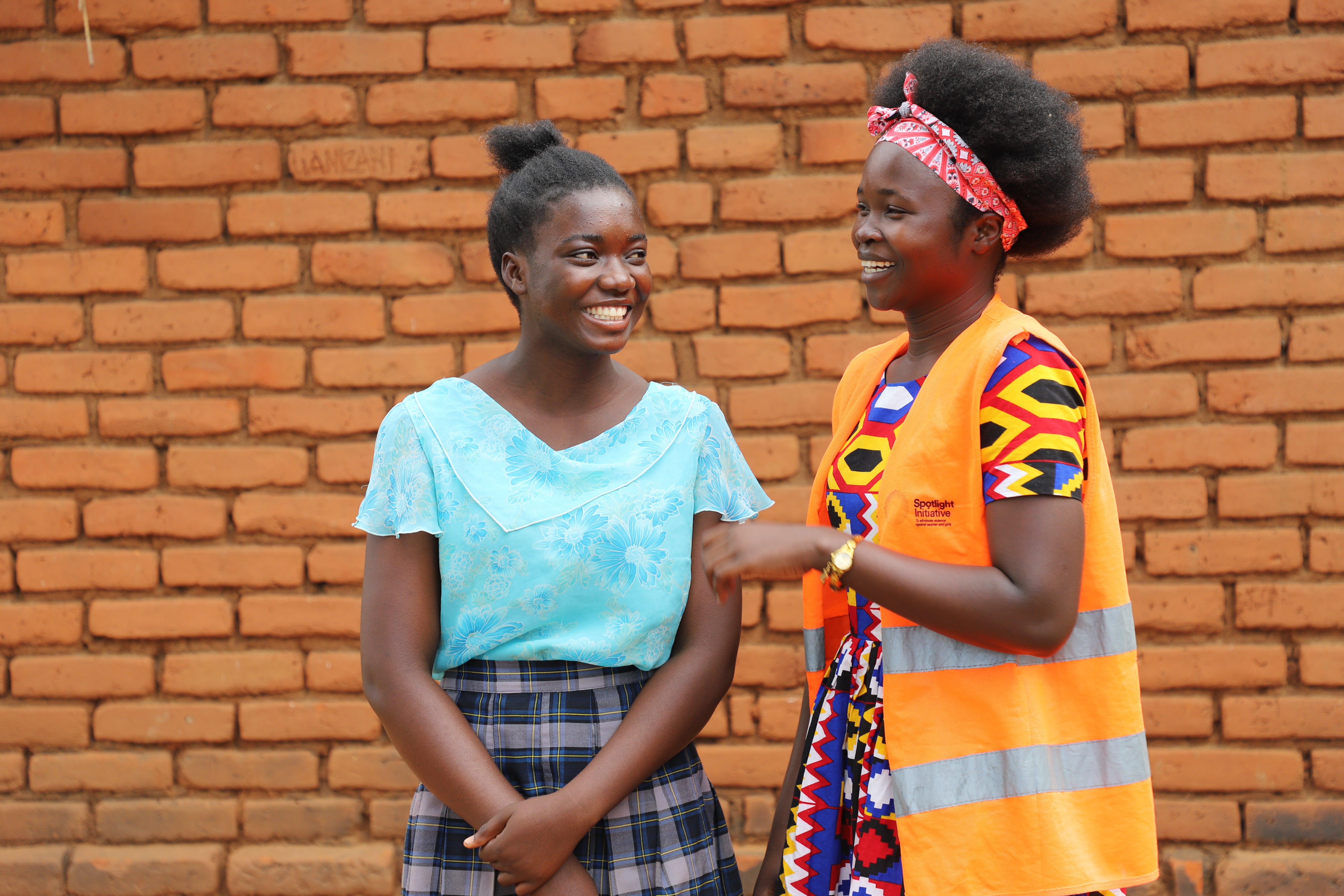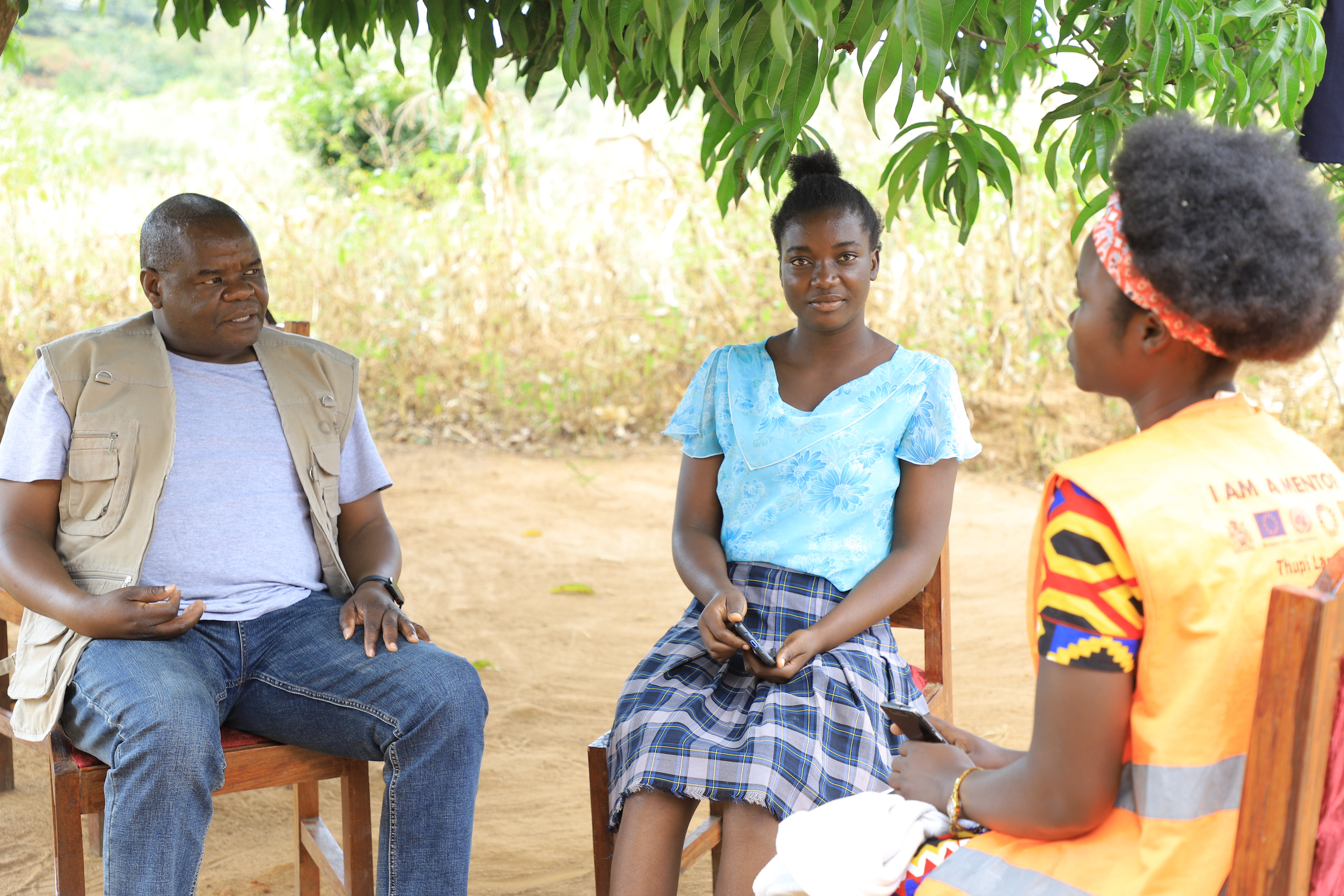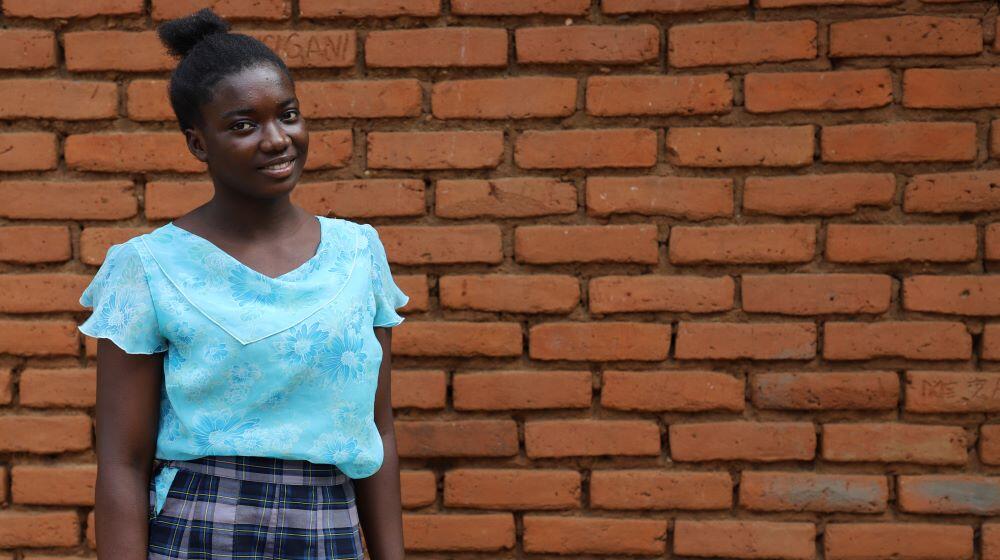For many young people in Nkhata Bay, the dream of travelling to South Africa is enticing. With unemployment at its peak in Malawi, the lure for a better life in this foreign land is irresistible. Although some do make it, some come home empty handed. But this doesn’t discourage many to troop to the southern African country.
The migration trend has been blamed for fueling child marriages in the district. Many families prefer their daughters to get married to men residing in South Africa so that they can benefit financially. And Emily Saka (18) nearly became a victim of the tradition. When she was 17, Emily was ‘offered’ to a man working in South Africa for marriage. She had not even met him.
I heard so many stories about South Africa,” says Emily. “So when I heard that someone staying there wanted to marry me I was so excited. I was ready to go even when I didn’t know the person who wanted to marry me.
Parents forcing young girls into child marriage for financial benefits
When the marriage proposal came, Emily was going through a difficult time. Her parents had just divorced and they were back in the village. And as any other young girl, she missed the good life she enjoyed when her parents were together. In the village, life was tough, and the marriage proposal was an escape route to the life she yearned for.
However, as she was preparing to travel to South Africa, a mentor from a Spotlight Initiative safe space heard about her story. The mentor knew Emily as a bright girl, and thought of visiting her to talk her out of the marriage plans.
“I saw sense in what the mentor said,” explains Emily. “By then, I had written my secondary school final examinations and didn’t do well. So I decided to turn down the marriage proposal and return to school.”

Whilst waiting to enroll back to school, Emily joined one of the safe spaces in her community.
Led by the United Nations Population Fund (UNFPA), the Safe Space Model forms part of activities under the Spotlight Initiative being implemented by the United Nations, the Government of Malawi, Civil Society Organizations (CSOs) and other partners, with support from the European Union (EU).
These spaces work to empower women and girls to develop strategies and assertive skills to negotiate and challenge the harmful practices that fuel sexual and gender-based violence in communities. Girls and women learn how to challenge negative social norms that promote harmful practices such as sexual and gender-based violence, child marriage and teenage pregnancies.
“The safe space was an eye opener,” she says. “I came to know that early marriage was a violation of my rights. If I had accepted, this could also have spelled the end to my education. So, I am glad I listened to the advice given by the mentor.”
Helping GBV survivors with loans for business
Emily managed to access a MK20,000 (approx. US$20) loan from the survivor fund. The fund, which is managed by the Community Victim Support Unit (CVSU), helps survivors of gender based violence (GBV) with capital to start small businesses. And for the survivors to access the revolving loan, they have to form a group, get trained on small business management, and have to repay after an agreed period of time.
Growing up near the lake, Emily knew how the fish business operated, and she didn’t hesitate to try it after getting her share of the loan. Two months into her business, Emily made enough money to repay the loan and was left with MK60,000 (approx. US$60) as profit.
“I used part of the money to pay my school fees, rent a small room since I was doing self-boarding and gave my mother MK30,000 so that she continues with the business while I was at school,” she says.

During weekends, Emily would come back to help her mother with the business. Their capital grew and she made enough money to pay fees for her siblings and support her mother.
In 2021, Emily wrote her secondary school examinations and scored 23 points and was selected to study for a degree at Mzuzu University. Armed with the good news, she went to visit her father hoping that he would support her education. But he said he couldn’t manage to pay for her university fees.
“It was a big blow,” she says. “I expected him to be happy of my success, but I accepted his decision. I anticipated that much because he wasn’t there for me all along. I will just have to work hard in my business to support myself.”
In 2021, 68,960 women and girls accessed services through safe spaces including sexual and reproductive health, psychosocial support and counselling. This included 23,640 girls and young women attending the safe space mentoring programme gaining new skills and strategies to target sexual and gender-based violence. More than 700 child marriages were followed up resulting in 60 percent of these being annulled. The girls were returned to school.
By Joseph Scott, Communications Analyst


